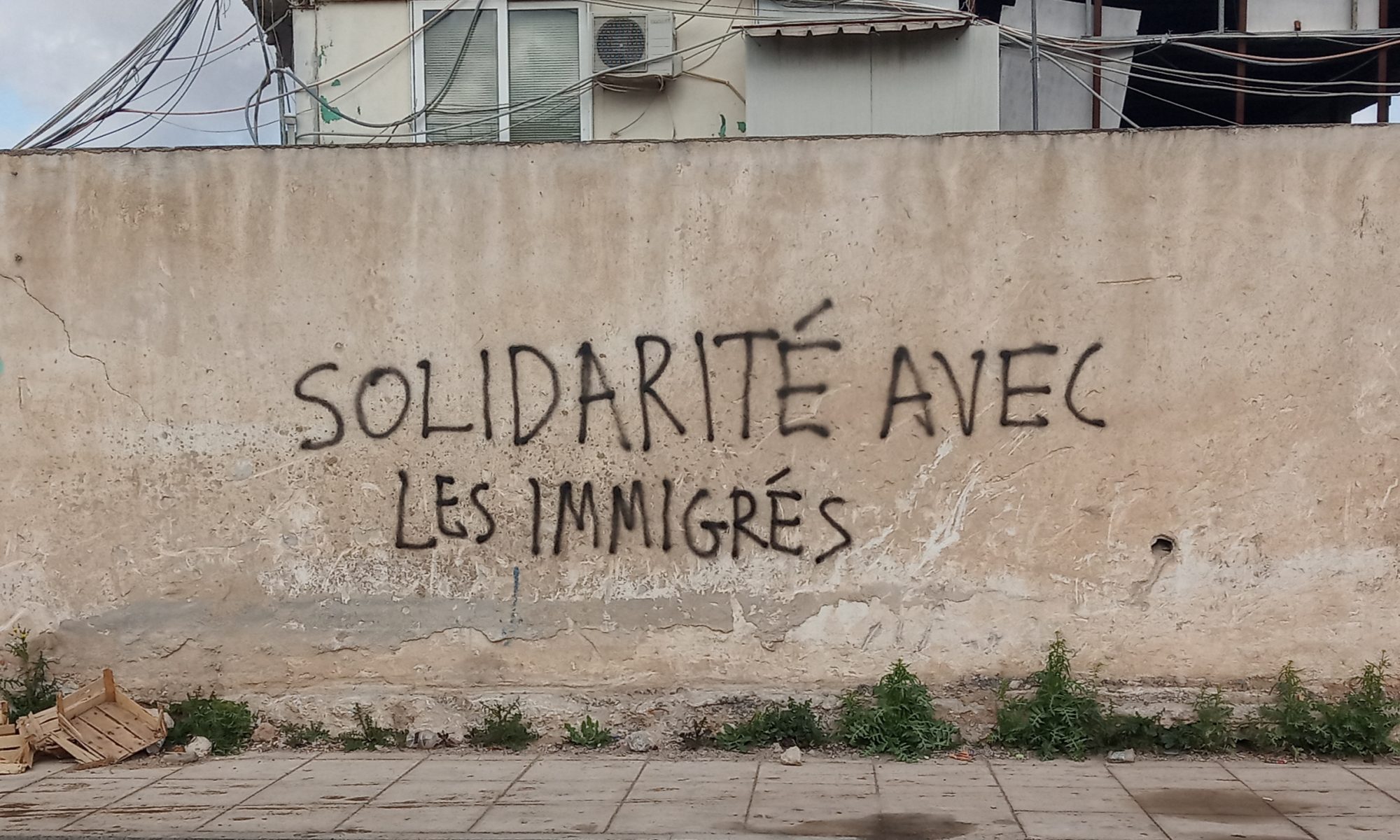We reached the migrants who live in Skaramagas and they communicated us their experiences from the conditions of their strict imprisonment that prevails there. On the one hand, obtaining asylum means their removal from the camp and the worst conditions of housing and on the other hand, repression is forced suffocatingly upon the bodies of the migrants that still live inside the camp. The migrants portrayed intense images of police violence, just before the cops appeared repealing first the migrants and afterwards arresting them. The cops justified their action by saying that our pamphlet “prompts the immigrants to a riot”. We view this reasoning as a pretext for more control and social sterilization. We respond to the policy of internal security and immunity with the desire to build communities where local and migrants can live together.
When we intervened the camps of Schistos and Skaramagas instead of encountering “open” camps we faced closed camps with cops paroling and protecting them closely. Those in charge of the camp keep on “reassuring” us that everything is “fine”. By far that was true, as it was revealed several days ago when the migrants, boiling with anger, demonstrated inside the camp of Schistos and went on hunger strike. In Skaramagas we confronted a higher condition of police control and repression, and a closer relationship between police and administration. From the moment of our arrival we started talking with the migrants. Immediately, the cops came to run an id check on us. However, this did not intimidate us as we continue talking with the migrants. They communicated us the totality of their living problems and that after their removal from the camps because they obtained asylum, they were living in the worst conditions asking for housing. The response they got from the police is violence by hitting them and throwing them away, as the migrants told us in secret and as we saw by our own eyes when we were speaking with them and the cops tried to pull them away. When the cops understood that we are not intimidated, they came again and threatened to arrest us for “prompting the migrants to riot” because this was allegedly implied by our pamphlet. We respond that our desire for creating communities when locals and migrants can live together cannot be terrorized.
